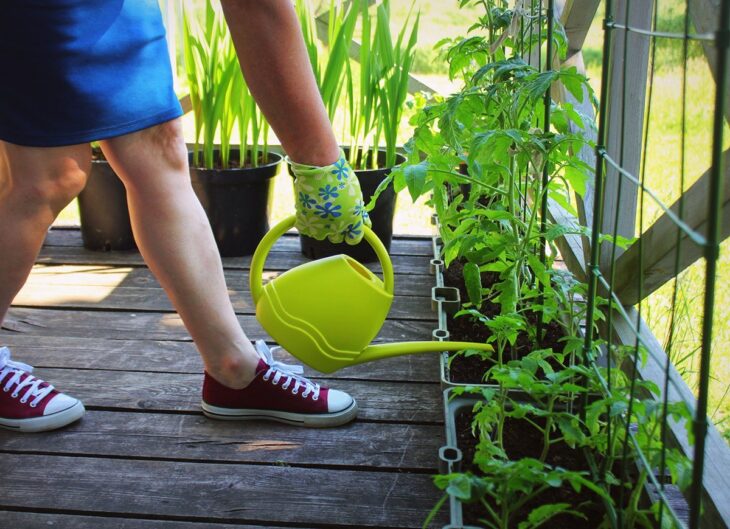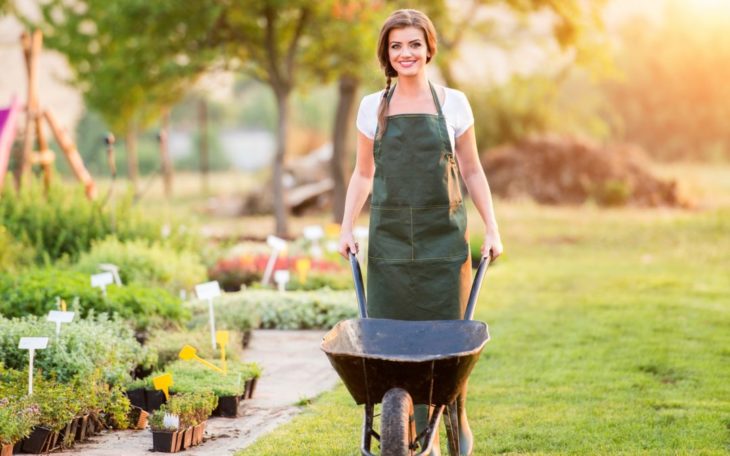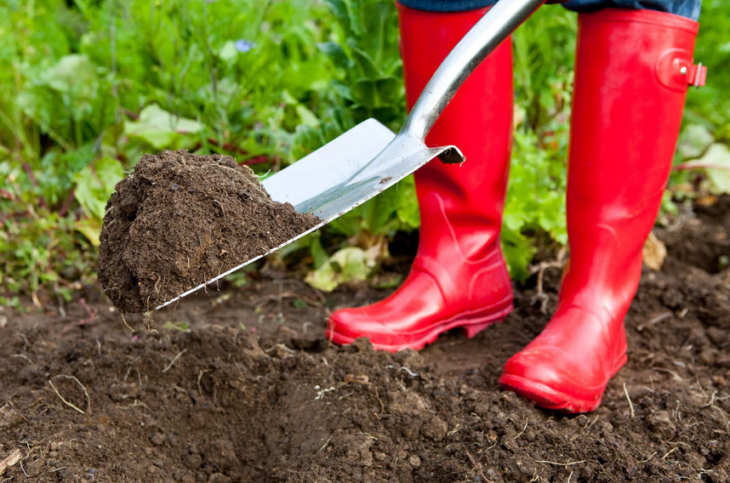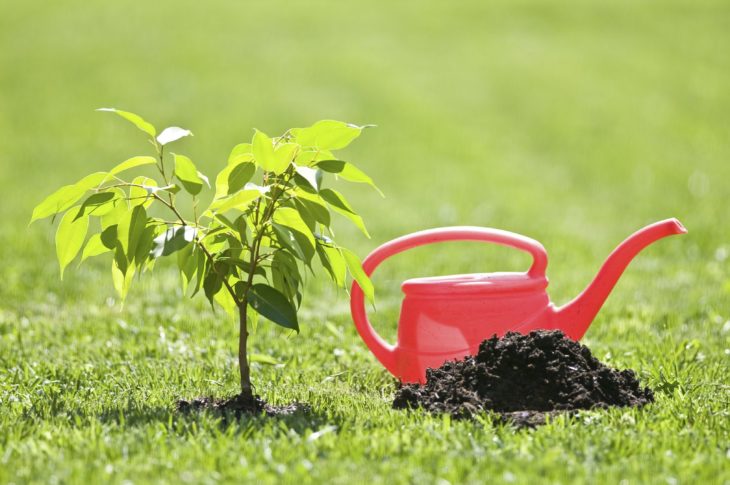Having your garden sounds complicated but, it is quite simple. Scientists are saying that this rewarding hobby has a great impact on health because it reduces stress and brings better eating habits. If you are new to gardening here are some pieces of advice that will help you to start in the first place.
Contents
1. Soil preparation
You can purchase topsoil or compost, but this will cost you a lot. The other, cheaper, and simpler way is that you simply dig into the ground. Afterward, you can add fertilizers, and to determine which exactly nutrients your soil needs you can use special kits. Knowing the exact value of pH will help you a lot.
2. Watering issue
It may not seem logical at first, but do not over-water. In this case golden rule is that ‘less is more’. Too much water can seriously damage the roots system. Newly planted seeds need soil that is quite moist, but after that phase, it is enough to water once or twice a week. This rule can be broken only during really hot summer days and severe drought periods. Overhead sprinkling can be tricky since leaves should not be wet for long. For millions of years, plants were capable of living without artificial irrigation, and therefore you should water them mindfully.

Source: bobvila
3. Space planning
Remember that plants must have enough space. On contrary, you will have to spend a lot of time watering and, they will easily catch some disease.
4. Destroy weeds
The worst enemies of every garden in the world are small, little, boring weeds. Remove them regularly (each week) and make sure that all the roots are gone too. A common mistake is to put them in the compost afterward because if you do that there is a high chance to make even worst problems in the future. Protip: after watering it will be easier to pull weeds out of the ground.
5. Pick a good location
Do not plant in a location that receives strong winds or floods easily. Keep in mind that most plants really love sunlight – a minimum of 6 or 7 hours of sunlight a day is necessary.

Source: Defined Mortgage Services Inc
6. Safety precautions
Can you believe that thousands of people each year got injured while gardening? It will be wise to take some simple safety precautions in the garden, such as:
- Be careful during rainy and cold periods, the ground will be icy and slippery. Also do not use electrical equipment when it is wet outside.
- Keep all sharp tools and chemicals locked away from children (organic/bio label does not mean they are less harmful). Additionally, keep poisonous plants away from kids and pets.
- Use safety equipment – gloves, boots, goggles, etc.
7. Planting plan
Would you like to have a flower, vegetable, or herb garden? Make a proper planting plan and your plants will grow well. If you are a busy person then choose plants that require little maintenance and suffer a few diseases. Ask neighbors about their experiences in past and you will realize what plant will be the most suitable for planting.
8. Vertical gardening
Think out of the box – try nontraditional vertical gardening! Soon you will realize you have much more growing space than you thought you had. True, in beginning you will spend more time, but it will worth it in end. Besides an interesting look, vertical gardening can add some privacy to your property.

Source: readersdigest
9. Container gardening
Not having your own plot of land is not an obstacle. The solution to that is the usage of smaller or larger containers. Pay attention to create optimal drainage otherwise, your plants may die.
10. Buy tools
Nurturing your garden can be a few minutes or even a whole day job and investment in proper tools can be helpful. Try not to use cheap plastic one, better wait for the next big sale or check out yard sales in the neighborhood area. Metal tools have better durability and longer lifetime. Some basic tools that you need are a hoe, a dirt rake, shovel, trowel, watering can, etc. To read more about gardening and gardening tools visit Gardening.com.
11. Keep an eye on pests
Damage made by insects can be extremely dangerous. Trough damaged area viruses and bacteria can enter fast and easily. Additionally, insects sometimes transport viruses by themself. To prevent diseases during winter always remove dead leaves from the garden in the fall. Furthermore, prune damaged limbs in winter, do not wait for spring. They can get infected during winter and spread to the new growth. Also, by trimming dead blooms plant will probably bloom more.

Source: Gardening Know How
12. Go organic from the start
Many gardeners prefer organic techniques. Crops produced this way are tasty and healthy at the same time. Be prepared that your veggies will not have that perfect look, but on the other hand, they will have perfect taste. Fortunately, organic food is becoming more popular so there are a lot of great books and forums where you can search for more information and advice. Moreover, if you produce more than you can eat (or freeze) you can always try to sell it at the local market.
13. Make compost
Save some money by making compost. It won’t cost you anything, and the only downside is that you have to wait some time before it is ready to be used. Just collect organic materials like fruit and vegetable scraps, coffee grounds, eggshells, and similar, and very fast you will have free fertilizer.
14. Help pollinators
Bee-friendly plants are an oasis for pollinators. Help them and they will help you and pollinate your flowers! As a general rule, if you have lavender, lilacs, clover, honeysuckle, or berries in your garden, you will have a lot of bees visits too. Build a native bee house (bee hotel) and attract even more bees and watch them work.
Ok, now when you know the basics you can start with making your own oasis. In a few months, you will enjoy in the delicious products of your work. Share it with your friends and family! Start today, what are you waiting for?
